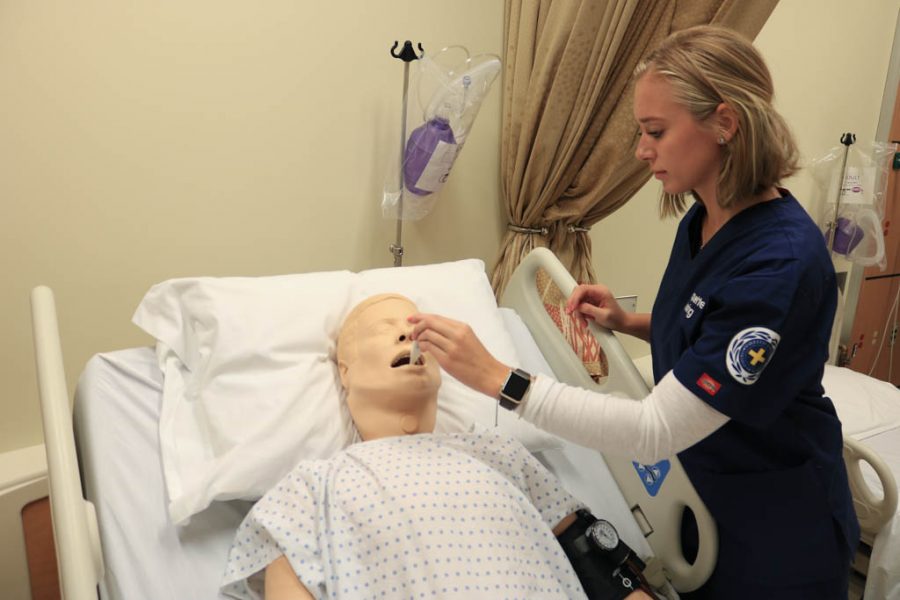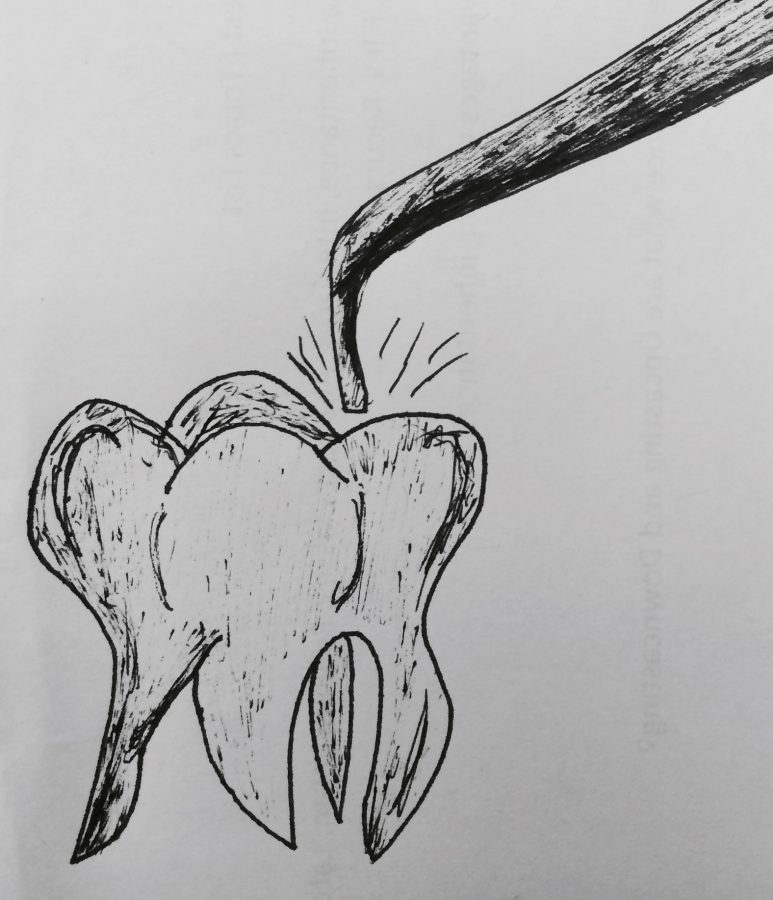Marquette University recently became the first university in southeastern Wisconsin to offer a doctorate-level nurse anesthesia program after several years of planning, preparing and completing the accreditation process.
Graduates of the program will receive a Doctor of Nursing Practice degree with a specialization in nurse anesthesia. This year, 116 students applied, but only 10 were accepted into the cohort.
Students accepted into the program will undergo a rigorous three-year, 91-credit, full-time course load with instruction and practice both in and out of the classroom.
“It’s what we call front load integration,” clinical associate and program director Lisa Thiemann said.
Thiemann said the first year of the program is mostly instructional with very little clinical experience, but “then the students move into clinical with the greater frequency.”
When students are not in clinical, they spend a significant amount of time in the basement of Clark Hall; where they practice in their makeshift operating room, which features a computerized mannequin that simulates real scenarios and an anesthesia machine.
“Students will be able to really replicate and demonstrate that the content they’re learning in the classroom setting translates to their hands and their ability to translate it to the patient’s bedside,” Thiemann said.
The goal of the program is for current and new faculty members to prepare students to pass the national certification examination and earn their Certified Registered Nurse Anesthetist credential.
Natalie Quist, a junior in the College of Nursing, had a summer job as an anesthesia technician. She said Marquette prepared her for her responsibilities cleaning up after surgeries and helping out with innovations.
“Being a Marquette nurse means a lot because they try to make you well-rounded,” Quist said. “It’s not just about focusing on the medicine side, but how to talk to patients and make them feel more comfortable which is really good compared to other nursing schools.”
Quist said her summer job made her interested in becoming a nurse anesthetist and applying for the program at Marquette so she can continue to work in Milwaukee, a city that she wants to continue serving.
“To be the first doctorate-prepared program in southeastern Wisconsin is terrific because Milwaukee is a great area with a lot of need for access to anesthesia services,” Thiemann said.
Marquette now offers advanced practice registered nursing specialty in all four areas: clinical nurse midwifery, nurse practitioner, clinical nurse specialist and nurse anesthesia.
Lucy Casper, a freshman in the College of Nursing, said she is attracted to the growing nursing program.
“I love the nursing field. I’ve wanted to do it since I was little,” Casper said. “ I used to patch up my siblings with Band-Aids for no reason.”
Casper said she feels proud to say that she is a Marquette nursing student.
“(The anesthesia program) strengthens the reputation of the nursing program, considering it as among the top in the country,” Casper said.
“It also gives students an opportunity to grow in their education, grow in their experience, and it gives us a leg up when we go to apply for jobs.”
Casper said she is interested in the anesthesia program and has already started taking strides to prepare for it by focusing on classes, getting involved in the MU Student Nurses Association and preparing for clinicals.
Students must meet admission criteria to apply for the anesthesia program. These requirements include but are not limited to a completed bachelor’s or graduate degree in nursing, one year of full-time clinical experience or two years of part-time clinical experience in an intensive care unit setting, at least one year taking care of high acuity patients and a minimum GPA of 3.0 with a science GPA of 3.0 or above.
After applying, the admissions committee invites roughly 30 students to complete a phase of interviews before selecting its candidates.
The fall 2019 application opens Sept. 4 and closes Jan. 11.



